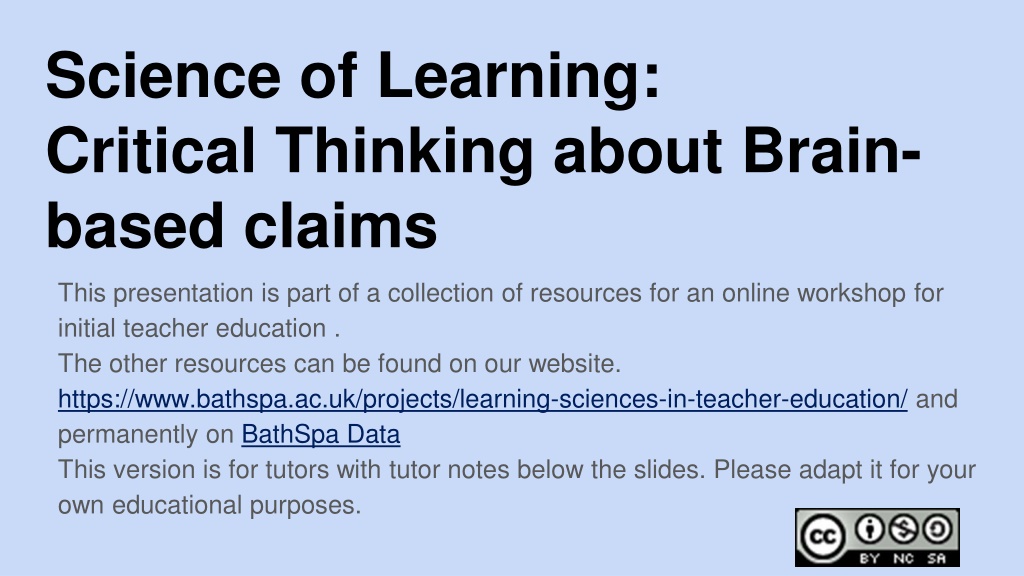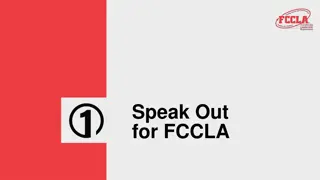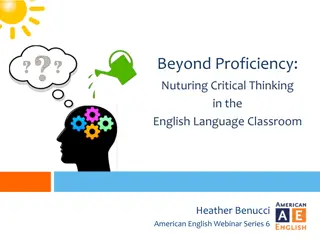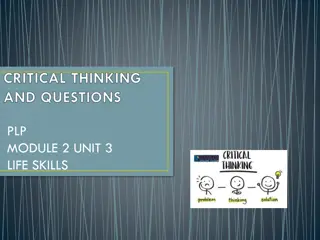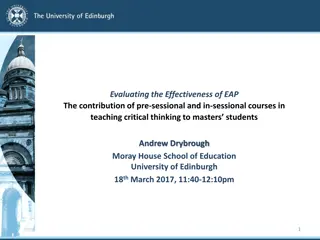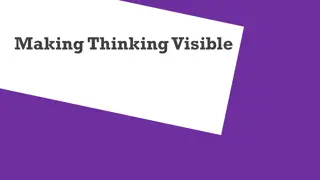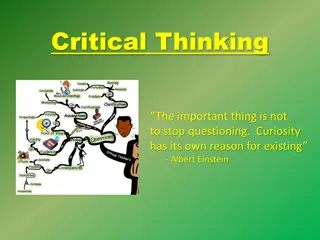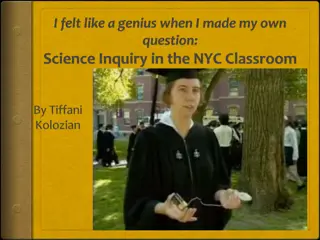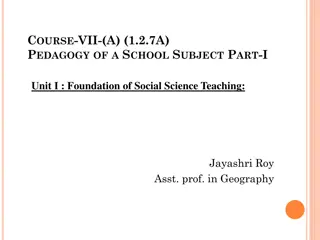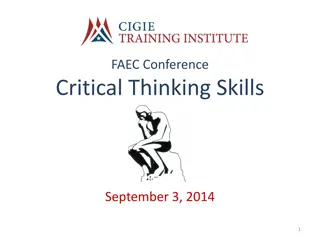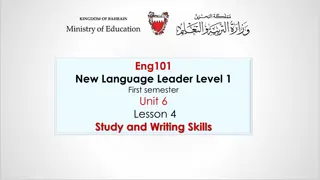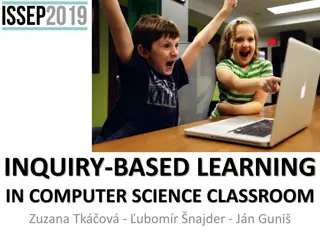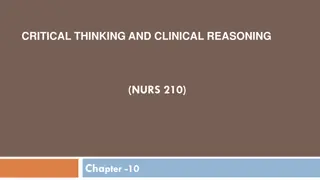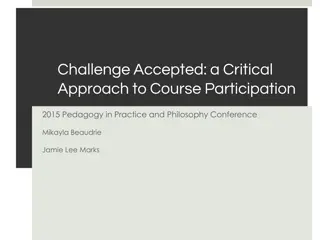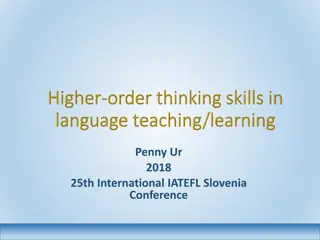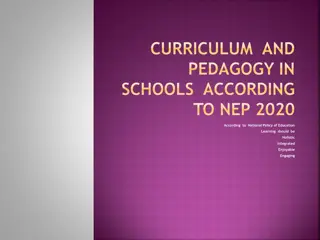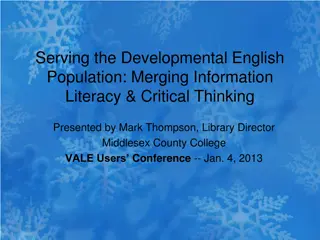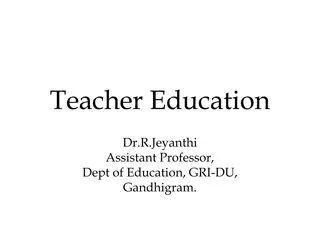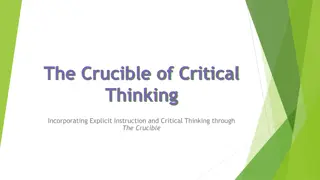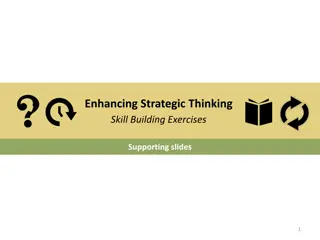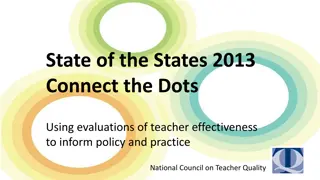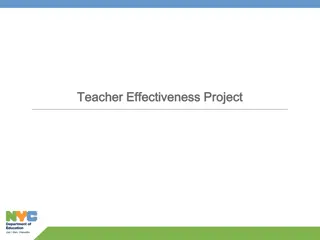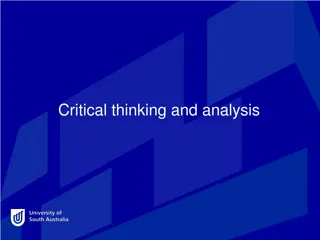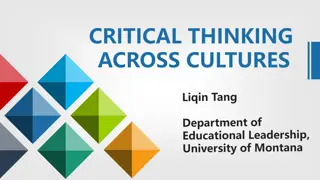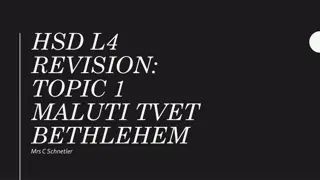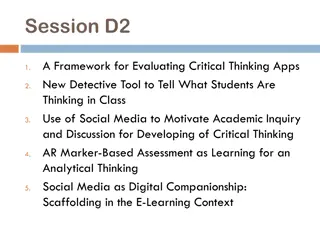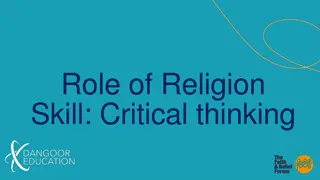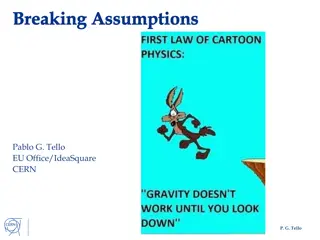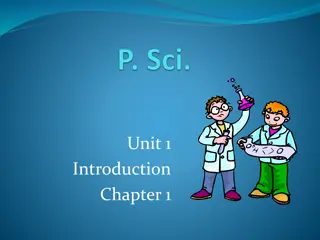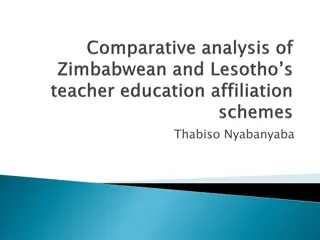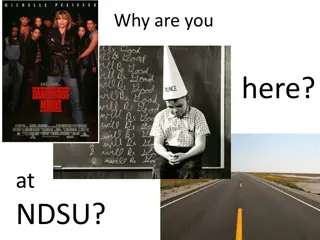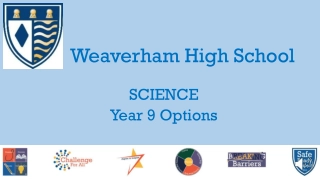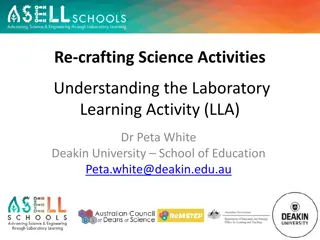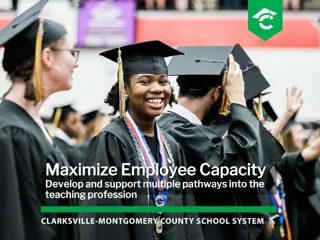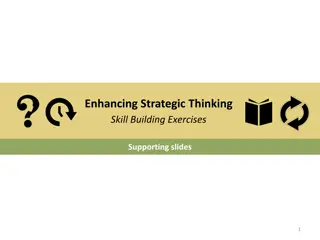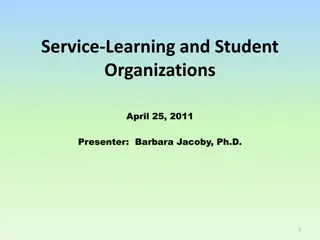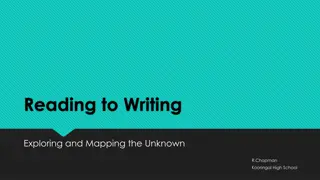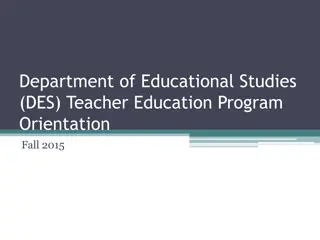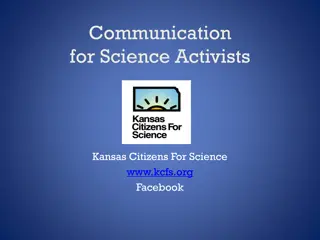Critical Thinking in Teacher Education: Science of Learning
Dive into the world of brain-based claims in education with this online workshop resource. Learn to critique scientific studies, challenge existing beliefs, and make informed pedagogical decisions. Explore the impact of neuroscience explanations on public perception and objectivity in understanding learning processes.
Download Presentation

Please find below an Image/Link to download the presentation.
The content on the website is provided AS IS for your information and personal use only. It may not be sold, licensed, or shared on other websites without obtaining consent from the author. Download presentation by click this link. If you encounter any issues during the download, it is possible that the publisher has removed the file from their server.
E N D
Presentation Transcript
Science of Learning: Critical Thinking about Brain- based claims This presentation is part of a collection of resources for an online workshop for initial teacher education . The other resources can be found on our website. https://www.bathspa.ac.uk/projects/learning-sciences-in-teacher-education/ and permanently on BathSpa Data This version is for tutors with tutor notes below the slides. Please adapt it for your own educational purposes.
Science of Learning: Critical Thinking about Brain- based claims
Intended Learning Outcomes To challenge you to think critically about the science of learning To consider what is known about learning and the brain To equip you with the skills to critique claims and to make informed pedagogical decisions
A short research study... You will be allocated 4 descriptions of scientific studies (scroll to find your allocated sheet number. There will be two pages to look at) For each study, you will also be given an explanation of the phenomenon described The explanations may not necessarily be real explanations of the phenomenon Your task is to rate how convincing you find each explanation on a scale from -3 to 3 and to record this on a spreadsheet
For example, Look at the letter (B) when you record your response Sheet number (2 pages) The study The explanation
Collecting the data Collect the scores for explanation A , B , C , D Sheet number A B C D
What is this all about? This is a quick version of a classic study by Deena Skolnick Weisberg and colleagues called the seductive allure of neuroscience explanations . The rationale behind the study was that neuroscience uniquely piques the interest of the general public (we all love to hear about brains). But does this cause problems when it comes to being objective about neuroscientific explanations?
The seductive allure of brain science We have a blind spot when it comes to neuroscientific explanations This was also found when including irrelevant brain images alongside educational articles (Im, Varma & Varma, 2017) Complexity is oversimplified in education Image Credit: Christopher Whelan, Royal College of Surgeons in Ireland. Attribution 4.0 International (CC BY 4.0)
The problem of over-application Limited knowledge about a complex topic, coupled with our blind spot, can result in neuroscience being unhelpfully or needlessly applied in the classroom examples: brain breaks , brain gym
Does it matter? Teachers 82 % of teachers responding to our surveys say that they are interested in how the brain works, 54 % had looked up information on the brain in the past four weeks: 75 % had used their understanding of neuroscience to inform classroom practice, only 25 % report having a good or fair amount of knowledge about neuroscience image of report document Blue document cover page with title How neurosciecne is affecting education and Wellcome trust logo Parents 97% said they were interested in how the brain works 57% of parents had looked up information on the brain
How would you respond? She s like me - no good at maths, but more of a right brained creative thinker. We must praise children for their effort, not tell them they are clever, to foster a growth mindset. Anyone can achieve anything if they believe in themselves! I ve seen this brain training app to improve her maths, what do you think? COLLEAGUE PARENT CONSULTANT If you give children frequent tests and quizzes it really helps them to remember the facts. He s a kinaesthetic learner he only learns by doing. Have you done a VAK test with your class? HEADTEACHER TEACHING ASSISTANT
Points to consider Who is making the claim? Are they a researcher with expertise in the area? Do they have a financial conflict of interest? Is the claim based on published research? How is learning being conceived and evaluated? Has the research been replicated? If so, who by? Who were the participants? (children, university students, mice) Are the data publicly available? How does the claim fit in to your own beliefs and values?
Research Retrieval Practice Brain Training VAK/Learning styles Left brain/right brain Mindset Write a summary of your findings on a shared document. Use these 4 questions to scaffold your analysis. 1. What were your initial feelings about the idea? 2. What scientific evidence is there for the idea? 3. How might you critique the idea? 4. What are the implications for classroom practice?
Research Retrieval Practice VAK/Learning styles Mindset Brain Training Left brain/right brain Write a summary of your findings on a shared document. Use these 4 questions to scaffold your analysis. 1. What were your initial feelings about the idea? 2. What scientific evidence is there for the idea? 3. How might you critique the idea? 4. What are the implications for classroom practice?
Present a claim Spend 2 or 3 minutes explaining the implications for classroom practice, based on the scientific evidence (or lack thereof)
Implications for primary teaching This is not about how to teach neuroscience at primary level. This is more about being aware of the need for critical thinking when you are presented with a learning programme that claims to be brain-based . To date there are few robustly tested neuroscience-based initiatives that can be directly applied to the classroom. Knowledge of the brain is changing fast. Useful concepts like neuroplasticity and an understanding of the interconnected nature of the brain are emerging, together with a better understanding of memory and of developmental disorders.
Post seminar task Choose one article you have not already read from the Science of Learning collection in the Chartered College of Teaching Journal; Impact. There are 3 pages of articles. Remember to read this with a critical eye. This can be used as general reading to support your assignments.
References and further reading Goswami, U. (2015) CHILDREN S COGNITIVE DEVELOPMENT AND LEARNING, Cambridge Primary Review Trust. Pearson. [accessed 07/08/19] full report Briefing from the full report available at: https://impact.chartered.college/issue/issue-2-science-of-learning/ Blakemore, S-J. & Frith, U. (2005) The Learning Brain. Blackwell Publishing. Burnett, D. (2016) The Idiot Brain. Guardian Faber. Churches, C. Dommett, E. & Devonshire, I (2017) Neuroscience for Teachers Applying research evidence from brain science. Crown House Publishing. Conkbayir, M. (2017) Early childhood and neuroscience: Theory, research and implications for practice. London: Bloomsbury. Goldacre, B. (2008) Bad Science. Fourth Estate.
References and further reading Howard-Jones, P. (2010) Introducing neuroeducational Research Neuroscience, education and the brain, from contexts to practice. Routledge. Jarrett, C. (2014) Great Myths of the Brain. Wiley-Blackwell. Mccrea, P. (2017) Memorable Teaching: Leverage in memory to build deep and durable learning in the classroom. Tibke, J. (2019) Why the brain matters: A teacher explores some neuroscience. London: Corwin Im, S. H., Varma, K., & Varma, S. (2017). Extending the seductive allure of neuroscience explanations effect to popular articles about educational topics. British Journal of Educational Psychology, 87(4), 518-534. Willingham, D. T. (2008) Ask the cognitive scientist: What will improve a student s memory? American Educator. Winter pp. 17 - 25. Willingham, D.T. (2009) Why Don t Students like School? A cognitive scientist answers questions about how the mind works and what it means for the classroom. Jossey-Bass Wiley.
